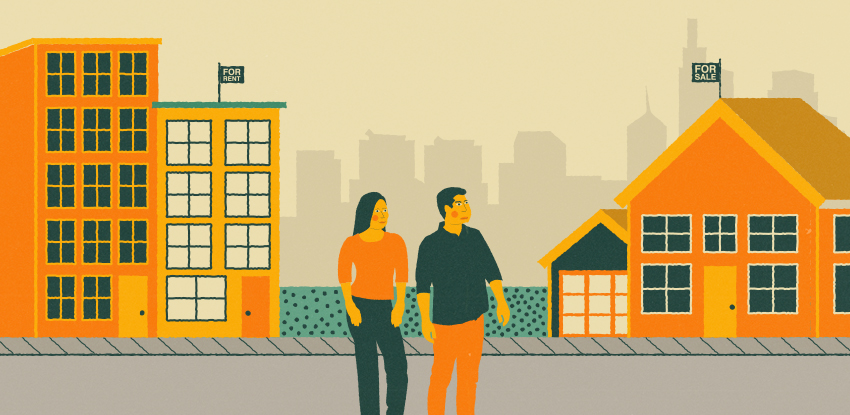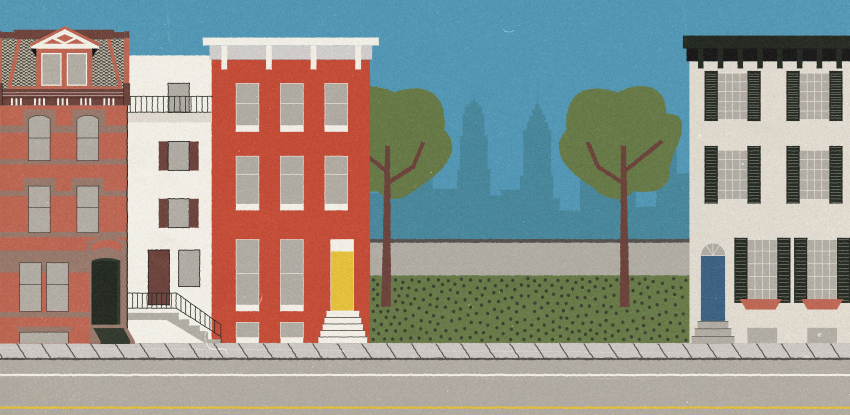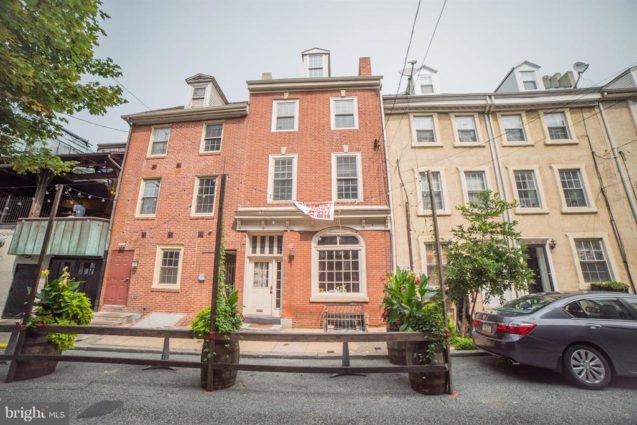Renting is an excellent option until it is not. Your one or two-bedroom apartment suddenly no longer fits your lifestyle due to marriage, the birth of a child, or the realization that working from home opens the possibility of living just about anywhere. Perhaps in a neighborhood where parking does not require divine intervention, or simply because you want more amenities and a strong community like Rebecca, a longtime renter of 14 years, who made the switch to homeowner when she found a perfect fit in Kensington Yards, Solo’s condo project. Whatever your reason for making the transition from renting to buying, an experienced real estate agent can help guide you through the process and ensure everything runs smoothly.
How much house can you afford?
“First-time buyers in Philadelphia have many options in the $250,000-350,00 range,” said Solo Real Estate agent Alejandro Franqui. “In your late twenties, a two-bedroom, two-story house in Fishtown or Point Breeze will work for you. When you outgrow it, you can sell it and buy a larger house or it can become a very rentable investment property.” Unlike rent payments, monthly payments towards a mortgage can become a good long-term investment, generating passive income when you decide to find another home.
An example is a two-bedroom house listed for sale at 1491 East Wilt Street in Fishtown/East Kensington listed by Solo agent Jeff Carpineta. The living room has great natural light and the kitchen features new appliances including a granite wrap-around counter and stainless fridge. But the real selling point is the great neighborhood within walking distance of trendy restaurants, yoga studios, and parks.
Get pre-approved
To find out your price range, including your down payment, start by reviewing your credit report on Experian, TransUnion, or Equifax. Next, talk to lenders to determine the mortgage rate for which you qualify. Be prepared. Banks will ask for your W2s, your last couple of years of tax returns, bank statements, and pay stubs. The goal? To be pre-approved for a mortgage before you start looking at houses. Pre-approval doesn’t mean you’re applying for a mortgage — just getting an idea of what you’re approved for.
Now ask yourself, how much of your monthly income are you planning to spend on your home? Make sure your answer isn’t dependent on factors over which you have no control, such as fluctuations in the stock market, the economy, job loss, or inheritance that could go into litigation or simply evaporate.
To get an idea of what you can afford, try Nerd Wallet’s Online Calculator. It uses basic questions – household income, credit score, expenses, desired Zip Code – to compute how much you can spend on a house and what your monthly mortgage payments will be. Transunion recommends keeping your total housing payment under 28% of your gross monthly income. (i.e. Say your family’s monthly gross income is $7,000, you want to keep your total housing payment including taxes under $1,960). Down payments are another factor. 20% is standard but buyers often put down 10% or less. FHA borrowers might put down as little as 3.5%.
Select an Agent
Ideally, you want an agent with a solid track record in the neighborhoods you are considering, as well as one who is familiar with your current location. With 70 years experience in Philadelphia, the agents at family-owned Solo Real Estate have the inside track on the City’s best values and neighborhoods.
As a result, Solo agents know a lot more than you see online. They know which areas have already peaked in home value and which are on their way up. They have also built relationships in neighborhoods across the city and can sometimes find homes before they hit the market, giving you a leg up in a competitive sellers’ market. More importantly, they have access to MLS (a Multiple Listing Service that provides information about properties for sale) and to “comps,” the history of sale prices in the area in which you want to buy. When it comes to negotiating with the seller, your agent will get you the best possible price.
Inspection
Think of inspection as bringing the person you love home to meet your parents for the first time. You are head over heels with the house of your dreams. It has everything on your wishlist. Hardwood floors, good lighting, a modern kitchen, roof deck, and parking space. Then comes the inspection to point out all its hidden flaws. Trust your agent to analyze the information. It may be a dealbreaker. Or an opportunity to ask the owner to make improvements and/or lower the price.
Closing
The closing process begins when you have signed a purchase and agreement of sale. From the signing date to the closing date can take four to six weeks. During this time, purchasing funds are held in escrow, where your money is safe until the deal is officially done. Within 24 hours prior to settlement, you and your agent will do a final walk-through to make sure the seller has completed all of the repairs required and there are no additional repairs needed. This is your cue to flush toilets, run garbage disposals, and exhaust fans, open garage doors, etc. On settlement day, you’ll either sign your paperwork electronically or safely meet with your agent and a representative from the title company to sign and get the keys.
Once your paperwork is done, and you have the keys, pop open that bottle of Champagne and celebrate. Your new home awaits!
Looking to make the transition from renter to homeowner? We can help! Learn more about our buying services here, and contact us for more information.



